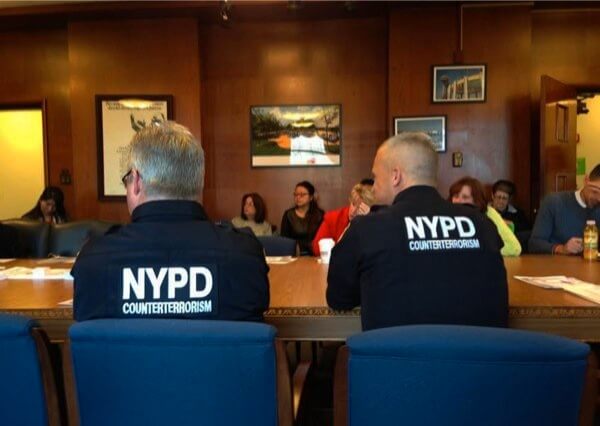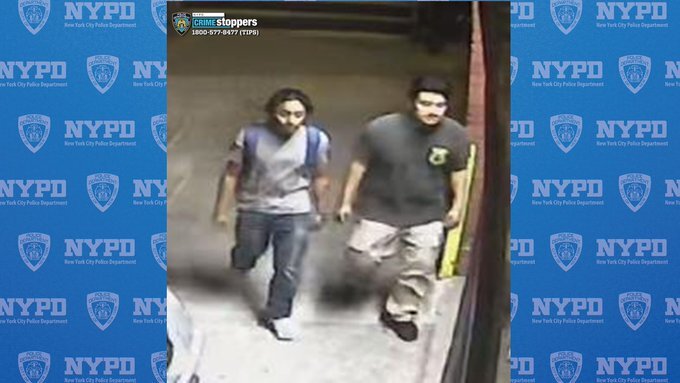By Sadef Ali Kully
The NYPD counterterrorism unit for Patrol Borough Queens North spoke Tuesday with district managers for Queens community boards at Borough Hall about new tactical training and gathering intelligence on would-be terrorists.
The attacks in San Bernadino, Calif., and Paris have local, federal and international authorities following up on intelligence and looking for clues to thwart future attacks.
The married couple in California who fatally shot 14 people gave no hints of radicalization until federal investigators delved deep into their social media accounts.
In New York, the Paris and California onslaughts have become a real wake-up call for the NYPD.
In the past year, Queens has been home to five accused terrorists and their failed plots. All of the suspects in those plots have been arrested. If convicted, they are facing life sentences in federal prison.
“There are no credible threats but that does not mean we stop doing our jobs,” Lt.Thomas Loeffel from the Patrol Borough Queens North Counterterrorism Unit said.
Loeffel said the Paris attack changed the way the NYPD was looking at possible terrorist assaults. Rather than just focusing on hard targets, such as tourist attractions, police will also focus on softer targets such as busy areas similar to the cafés that were attacked in Paris.
“It was not a sophisticated attack like 9/11. They were going for more small-scale attacks,” he said. “A couple of the [Paris] incidents were much like a drive-by shooting. The people had one thing on their mind—to kill and die.”
Loeffel said the NYPD will bring in a new emphasis on social media as part of their intelligence gathering and already collects an estimated 90,000 messages per day. “The focus is the homegrown terrorist,” he said.
Last month, the NYPD began practicing active-shooter drills similar to those carried out in the Paris attack.
The new counterterrorism units, Critical Response Command and the Strategic Response Group, are trained to respond to an attack. Both units are more heavily armed and their goal is to respond to a terrorist incident much faster than before.
“Sixty percent of the time the attack is over before the police even get there,” said Loeffel about the worldwide assaults they have studied.
The community board district managers had different questions that ranged from securing their public meetings to how to identify suspicious people.
Loeffel said the best thing to do is look at suspicious behavior, such as a single person receiving several packages a day by mail.
“Just call the NYC SAFE line, we get the intel,” he said. “No one will call you back—we will follow through and you never know, your tip could be something that connected to a bigger puzzle. Those calls matter.”
Loeffel said people who feel anxious about walking into a mall, for example, should leave the area.
“If the hair is standing up on the back of your neck, something doesn’t feel right,” he said. “Leave and come back 10 minutes later.”
Loeffel pointed out that if a crime is occurring, call 911, but if it is something suspicious call NYC SAFE, 1-888-NYC-SAFE (692-7233).
Reach Reporter Sadef Ali Kully by e-mail at skull


































